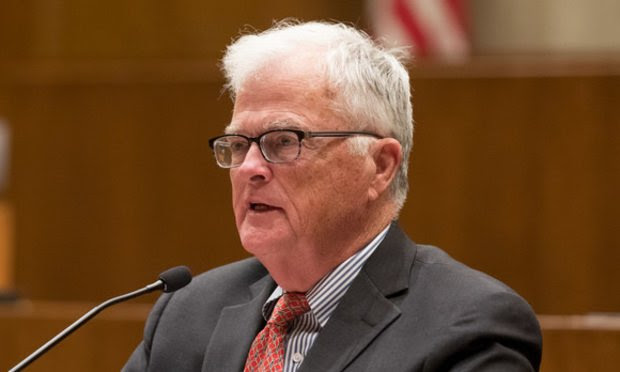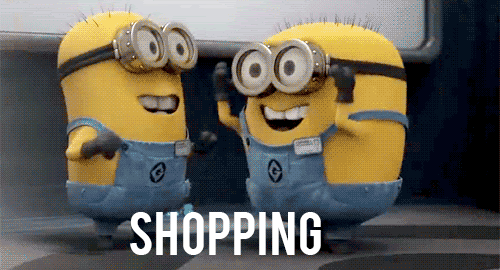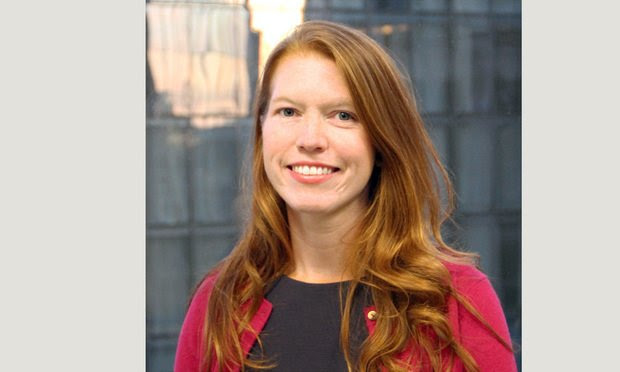Skilled in the Art: Apple and Cisco Must Jump Through Alsup's Hoops in Attorneys Fees Win + A Failed Forum Shopping Expedition
Apple and Cisco are going to get attorneys fees from Straight Path IP Group, but not the $10 million they were seeking.
November 22, 2019 at 04:44 PM
10 minute read
Welcome to Skilled in the Art. I'm Law.com IP reporter Scott Graham. Here's what's crossing my desk today:
• Apple and Cisco are going to get attorneys fees from Straight Path IP Group, but not the $10 million they were seeking.
• Patent owner accuses Houston judge of violating its right to forum-shop.
• Finnegan adds TTAB attorney to its trademark practice.
As always, you can email me your feedback and follow me on Twitter.
 Judge William Alsup. (Photo by Jason Doiy/ALM.)
Judge William Alsup. (Photo by Jason Doiy/ALM.)
On a Straight Path to Attorneys Fees
Some days writing this briefing is a breeze. Other days, I sit down at the keyboard with no idea what to write about. This has been one of those days.
Thankfully, U.S. District Judge William Alsup has ridden to the rescue. Alsup has cracked on another patent owner as only Alsup can—this time ripping Straight Path IP Group's "duplicitous machinations," its "slick maneuver" and its obfuscating "attorney speak" in patent litigation with Cisco Systems and Apple. Straight Path's crime? Arguing for a narrow claim construction in its validity case before the PTAB and the Federal Circuit, then advancing a broader construction in its infringement case in district court.
Some patent attorneys have another name for this: "standard operating procedure." But Alsup's courtroom is one place you never want your defense to be, "This is how we do things everywhere else."
Alsup on Wednesday declared Straight Path IP Group v. Apple and Straight Path IP Group v. Cisco exceptional under Section 285. Straight Path had submitted a declaration from a former Federal Circuit judge vouching for the reasonableness of its infringement position, but that could not overcome "the shifting sands" from one forum to the next, Alsup ruled. "Straight Path's duplicitous machinations in telling the Federal Circuit one thing and telling this Court the opposite on a critical point make this an 'exceptional case,'" Alsup wrote in a 13-page order.
Alsup may dislike patent assertion entities, but he doesn't have much patience for accused infringers either. Apple and Cisco aren't going to get anywhere near the $10 million in combined fees and costs they've been seeking. "Apple's fee request well illustrates the evil of satellite litigation over attorney's fees motions," Alsup wrote, noting that, for one thing, Apple's fee request included a separate PTAB proceeding. "The court would be inclined to deny Apple's request altogether on account of this overreaching."
Instead, he's ordered the tech giants to submit revised bills to a special master "for time and expenses that truly deserve compensation." Any unreasonable requests will be subject to trebled deductions—or an award of no fees whatsoever, the judge warned.
As is the fashion in his courtroom, the proceedings have been exceptionally transparent. The discounted hourly rates that 11 Hogan Lovells attorneys billed to Apple; the flat-fee arrangements between Cisco and its Baker Botts and Desmarais counsel; John Desmarais' deposition of former Federal Circuit Chief Judge Paul Michel—it's all on the public docket. Here are some of the highlights:
➤ The patents relate to establishing a point-to-point communication link. The key claim limitation describes "program code for transmitting, to the server, a query as to whether the second process is connected to the computer network." Faced with a finding of invalidity at the PTAB, Straight Path argued and the Federal Circuit agreed that "is connected" means "connected to the computer network at the time that the query is transmitted to the server."
"You've boxed yourself into a pretty narrow infringement argument, though, haven't you?" Federal Circuit Judge Kathleen O'Malley noted at the 2017 argument.
Before Alsup, Straight Path's Russ August & Kabat attorneys argued that the accused products, Apple's FaceTime and Cisco's Unified Communications Manager, could meet the "is connected" limitation by checking online status in real time or retroactively.
"The essence of this attorney speak is that a callee confirmed that she was online by answering the phone," Alsup wrote, a premise "so patently obvious" that it could not possibly be the key to the claimed invention.
➤ Alsup had granted summary judgment in November 2017 and the Federal Circuit affirmed him last January. Before oral argument at the appellate court, Russ August partner Marc Fenster retained Michel, who served on the Federal Circuit from 1988 to 2010, to hone his arguments and do some moot-courting. Michel stated in a one-page declaration to Alsup last summer that during the process, "I ultimately considered the arguments for reversal of the [summary judgment] order to be logical and have a reasonable chance of securing relief."
Alsup ordered discovery and a deposition after Cisco and Apple complained that Michel hadn't disclosed his compensation or the facts or case law supporting his conclusions. Michel revealed at the depo that his standard hourly rate is $2,000, and that Fenster had provided a first draft of the declaration to help refresh his memory about the case. But, Michel said, he had "subsequently sat down at my computer and, with my pitiful two-fingered typing, typed out the very brief declaration" in his own words.
"Do you believe that you're in a better position than Judge Alsup, who's been living with this case, to determine whether or not he should issue fees or whether the case is frivolous?" Demarais asked Michel.
"Well, obviously, the decision is up to Judge Alsup," Michel replied. "Obviously, he has a much broader base of knowledge than I do" about the case.
Alsup wrote in his order Wednesday that Michel was retained to analyze infringement, and not the validity positions previously taken by Straight Path. "While the undersigned respects Judge Michel's opinion on the matter, under the totality of the circumstances, this order cannot credit the declaration enough weight to sway its finding of exceptionality," Alsup wrote.
➤ Cisco paid Baker Botts and the Desmarais firm a flat monthly fee. Baker Botts' fee ranged from $100,346.98 (Skilled in the Art note: pretty specific number for a "flat" fee) to $325,000 as work ramped up from August 2016 through July 2017. Cisco then began transitioning to Desmarais, which billed "a flat rate of $389,583.33 per month" through November 2017.
Cisco says it has actually paid a total of $5.3 million in fees but requested only $3.84 million from the court. It excluded a $750,000 success bonus paid to Desmarais for the summary judgment win, plus appellate fees and other work. Cisco argued that $3.84 million was reasonable given that Straight Path had valued the case at $41 million and was gunning for treble damages.
Cisco also requested $1.4 million in non-taxable litigation costs and asked Alsup to put Russ August on the hook for the entire bill, but that now seems unlikely as Alsup said he found no subjective bad faith warranting sanctions under Section 1927.
➤ Apple, meanwhile, billed the old-fashioned way, getting what it described as a 15% discount from Hogan Lovells' standard hourly rates. That worked out to 2018 rates of $790 an hour for Clay James and $637 for Lucky Vidmar (now in-house at Western Union), the two top billing partners on the case.
Apple's billing entries were pretty generic, though. For example, James billed $75,541 for "pre-trial briefing and preparation" and $110,643 for "expert discovery/witnesses."
Alsup said that won't cut it. He appointed BraunHagey & Borden partner Matt Borden as special master and directed Apple and Cisco to resubmit detailed bills covering every project. "A 'project' means a deposition, a motion, a witness interview, and so forth. It does not mean generalized statements like 'trial preparation' or 'attended trial,'" Alsup wrote. Detailed descriptions of the work, including the date, hours expended, attorney name, and task for each entry must be provided.
Borden, a former Alsup law clerk, will then write a report recommending fee awards for Alsup's consideration.
And, by the way, Borden will be working for the reduced rate of $200 an hour.
SPONSORED BY ALM
Thought Leader in Emergent Technologies Added to Legalweek Keynote Lineup
With a gift of clearly explaining complex—and confusing—technologies, Blockchain researcher Bettina Warburg (Co-Founder and Managing Partner of Warburg Serres Investments and Animal Ventures) joins the keynote line up at Legalweek New York. READ MORE 
Forum Shopping – Is That So Bad?
OK, Northern District of California judges can be kinda mean to patent owners. But they'll get a much better reception in Texas, right?
Well, maybe not in the Southern District of Texas' Houston division. After Superior Drilling Products subsidiary Extreme Technologies LLC drew an assignment to Judge Lynn Hughes in February, the company voluntarily dismissed its complaint against Stabil Drill Specialties without prejudice and refiled in Louisiana.
But before Extreme could get out of dodge, Hughes issued an order stating that "if refiled in or removed to the Southern District of Texas, the case will be assigned to Judge Hughes."
In May the Louisiana court transferred the case back to Houston for the convenience of parties and witnesses. It was randomly assigned to Judge Alfred Bennett, but on Stabil Drill's motion he sent it back to Judge Hughes.
Extreme raised a number of legal objections, including a 2016 Fifth Circuit decision that shot down another attempt by Hughes to impose refiling restrictions following a voluntary dismissal. "Although forum-shopping is not a trivial concern, 'Rule 41(a)(1) essentially permits forum shopping," the Fifth Circuit wrote in that case.
Then Extreme's lawyers at Raley & Bowick said what's really on their minds. "Although Judge Hughes has a copy of the U.S. Constitution on his office desk, he does not believe in the Seventh Amendment," John Wesley Raley wrote in a brief filed with Bennett. "He believes, as he once told the undersigned during a hearing, that patent plaintiffs are wrongly 'throwing sand in the gears of competition.'"
Raley attached a list of 104 patent cases that he said had been assigned to Hughes during his career. "Not a single case made it to trial," he wrote.
It looks as if Raley and Extreme Technologies are going to have to get along with Hughes for the foreseeable future. On Thursday the Federal Circuit turned away Extreme's petition for mandamus seeking reassignment to Judge Bennett.
"Judge Bennett did not violate any clear and indisputable authority in transferring this case to Judge Hughes," Judge Alan Lourie wrote for the Federal Circuit in In re Extreme Technologies. "To the extent that Extreme believed Judge Hughes exceeded his authority in issuing his initial order, it could have timely appealed from that decision but elected not to do so. Under the circumstances, granting this extraordinary relief would not be appropriate."
 Finnegan of counsel Katie McKnight
Finnegan of counsel Katie McKnight
IP Lateral – Finnegan
Katie McKnight has joined Finnegan, Henderson, Farabow, Garrett & Dunner as of counsel following a three-and-half-year stint as an interlocutory attorney at the Trademark Trial and Appeal Board. In that role she had been responsible for researching, drafting, and collaborating with administrative trademark judges and the PTO solicitor's office on precedential decisions. She also decided and issued orders on non-dispositive procedural and substantive motions.
McKnight previously practiced IP law at Harvey Siskind, Fenwick & West and Novak Druce + Quigg.
"We are excited to welcome Katie to Finnegan," Danny Awdeh, the head of Finnegan's trademark and copyright practice, said in a written statement. "Katie's experience at the TTAB will be a true asset to the firm."
That's all from Skilled in the Art this week. I wish you all a happy and peaceful Thanksgiving, and will see you all again Tuesday, December 3.
This content has been archived. It is available through our partners, LexisNexis® and Bloomberg Law.
To view this content, please continue to their sites.
Not a Lexis Subscriber?
Subscribe Now
Not a Bloomberg Law Subscriber?
Subscribe Now
NOT FOR REPRINT
© 2025 ALM Global, LLC, All Rights Reserved. Request academic re-use from www.copyright.com. All other uses, submit a request to [email protected]. For more information visit Asset & Logo Licensing.
You Might Like
View All
Skilled in the Art With Scott Graham: I'm So Glad We Had This Time Together

Design Patent Appeal Splinters Federal Circuit Panel + Susman Scores $163M Jury Verdict + Finnegan Protects Under Armour's House
Law Firms Mentioned
Trending Stories
- 1South Florida Attorney Charged With Aggravated Battery After Incident in Prime Rib Line
- 2'A Death Sentence for TikTok'?: Litigators and Experts Weigh Impact of Potential Ban on Creators and Data Privacy
- 3Bribery Case Against Former Lt. Gov. Brian Benjamin Is Dropped
- 4‘Extremely Disturbing’: AI Firms Face Class Action by ‘Taskers’ Exposed to Traumatic Content
- 5State Appeals Court Revives BraunHagey Lawsuit Alleging $4.2M Unlawful Wire to China
Who Got The Work
J. Brugh Lower of Gibbons has entered an appearance for industrial equipment supplier Devco Corporation in a pending trademark infringement lawsuit. The suit, accusing the defendant of selling knock-off Graco products, was filed Dec. 18 in New Jersey District Court by Rivkin Radler on behalf of Graco Inc. and Graco Minnesota. The case, assigned to U.S. District Judge Zahid N. Quraishi, is 3:24-cv-11294, Graco Inc. et al v. Devco Corporation.
Who Got The Work
Rebecca Maller-Stein and Kent A. Yalowitz of Arnold & Porter Kaye Scholer have entered their appearances for Hanaco Venture Capital and its executives, Lior Prosor and David Frankel, in a pending securities lawsuit. The action, filed on Dec. 24 in New York Southern District Court by Zell, Aron & Co. on behalf of Goldeneye Advisors, accuses the defendants of negligently and fraudulently managing the plaintiff's $1 million investment. The case, assigned to U.S. District Judge Vernon S. Broderick, is 1:24-cv-09918, Goldeneye Advisors, LLC v. Hanaco Venture Capital, Ltd. et al.
Who Got The Work
Attorneys from A&O Shearman has stepped in as defense counsel for Toronto-Dominion Bank and other defendants in a pending securities class action. The suit, filed Dec. 11 in New York Southern District Court by Bleichmar Fonti & Auld, accuses the defendants of concealing the bank's 'pervasive' deficiencies in regards to its compliance with the Bank Secrecy Act and the quality of its anti-money laundering controls. The case, assigned to U.S. District Judge Arun Subramanian, is 1:24-cv-09445, Gonzalez v. The Toronto-Dominion Bank et al.
Who Got The Work
Crown Castle International, a Pennsylvania company providing shared communications infrastructure, has turned to Luke D. Wolf of Gordon Rees Scully Mansukhani to fend off a pending breach-of-contract lawsuit. The court action, filed Nov. 25 in Michigan Eastern District Court by Hooper Hathaway PC on behalf of The Town Residences LLC, accuses Crown Castle of failing to transfer approximately $30,000 in utility payments from T-Mobile in breach of a roof-top lease and assignment agreement. The case, assigned to U.S. District Judge Susan K. Declercq, is 2:24-cv-13131, The Town Residences LLC v. T-Mobile US, Inc. et al.
Who Got The Work
Wilfred P. Coronato and Daniel M. Schwartz of McCarter & English have stepped in as defense counsel to Electrolux Home Products Inc. in a pending product liability lawsuit. The court action, filed Nov. 26 in New York Eastern District Court by Poulos Lopiccolo PC and Nagel Rice LLP on behalf of David Stern, alleges that the defendant's refrigerators’ drawers and shelving repeatedly break and fall apart within months after purchase. The case, assigned to U.S. District Judge Joan M. Azrack, is 2:24-cv-08204, Stern v. Electrolux Home Products, Inc.
Featured Firms
Law Offices of Gary Martin Hays & Associates, P.C.
(470) 294-1674
Law Offices of Mark E. Salomone
(857) 444-6468
Smith & Hassler
(713) 739-1250










